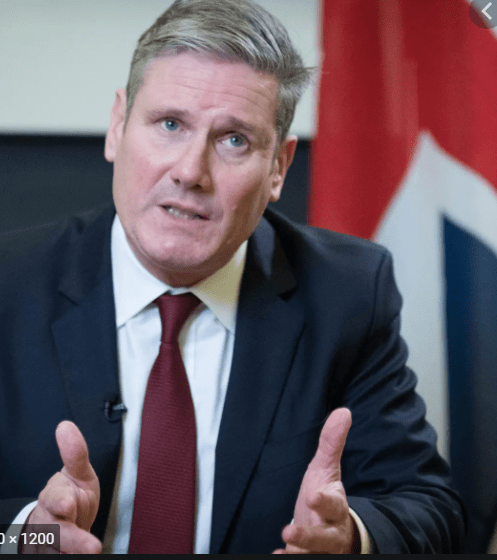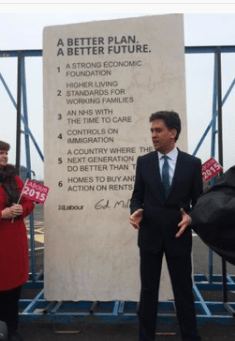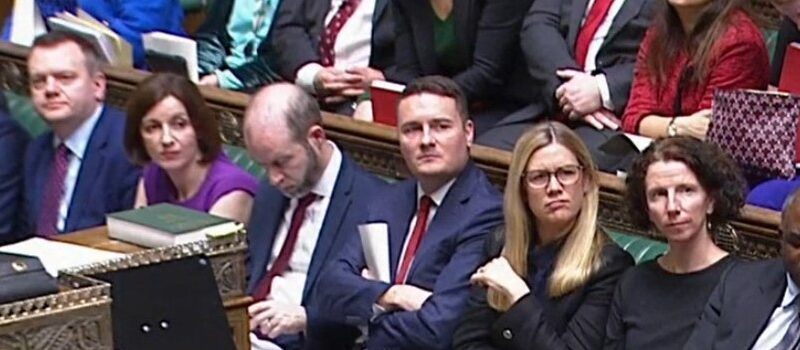By John Pickard
Keir Starmer has reinvented himself again, by means of a long essay, The Road Ahead, published courtesy of the Fabian Society, in which he sets out his views and philosophy. Having fought to be elected as Labour leader around his ‘ten pledges’, he has cheerfully junked them all in favour of what is mostly trendy, empty rhetoric.
“My promise to you” he wrote, in that bid to win the votes of hundreds of thousands of Labour members and supporters in the Spring of 2020, “is that I will maintain our radical values…” We will look at those ten pledges later, to contrast them to the ten new ‘principles’ he is now putting forward, but for the moment, one might well ask, if Keir Starmer is not capable of keeping his original ten, or the promise to maintain ‘radical values’, how can anyone take his new ‘principles’, or anything else he says, seriously?
Let us look at the essay, starting with the statistics: neither the word ‘socialist’ nor ‘socialism’ occur once. That is telling. ‘Worker’ or ‘workers’ is mentioned ten times, the same as ‘climate change’, although he does reference ‘working people’ from time to time. ‘Business’ or ‘businesses’ get 29 mentions. This is not just a set of nerdy factoids, but is symptomatic of the tone of the essay, where the entire thrust of policy (as far as there is any thrust) is based on managing capitalism better than the Tories. It is a rehash of the old David Cameron line, that “we’re all in it together”. In fact, ‘Britain’ or ‘British’ is mentioned 66 times.
Many parts point correctly to life under the Tories
In the essay there are many sections that point – correctly – at the difficulties and insecurities of life under the Tory government. Starmer makes a few valid points, no better, we might add, than have been made in many articles on this website, but worth quoting, nonetheless. These are some extracts:
“The government’s own Social Mobility Commission reported this year that almost 700,000 more children are living in poverty than in 2012. Across the same period, the number of children having to use food banks has risen dramatically…
“The Centre for Cities has shown that seven of the 10 cities that have faced the largest cuts are in the North East, North West or Yorkshire. Many of the poorest regions in Western Europe can now be found in this country…
“[By] 2020…life expectancy had stalled for the first time in a century and that for some of the poorest women in the country it had declined. It is an appalling legacy after a decade of government…
“Entering the 2020s, Britain faced stagnant wages, vast inequality and the slowest growth in living standards since the second world war…”

There is also, in the context of the Covid pandemic, a very good critique of the scandalous Tory run-down of the NHS:
“We had 10 per cent fewer hospital beds at the start of 2020 than we did in 2010/2011. During the same period, the rate of occupied beds increased. Waiting times were at a record level before the pandemic, with 4.5 million people waiting for treatment, compared to 2.5 million when the Tories came to power. GPs and hospitals were missing almost all routine targets. The NHS had nearly 100,000 staff vacancies, including 50,000 nurses. PPE supplies were disastrously low and supply chains were feeble…”
No commitment to rent controls or sanctions on rogue landlords
He even alludes to the corruption and nepotism that has characterised this government, most notably in its policies over the Covid pandemic. “Senior Conservatives”, he writes, “decided that the rules did not apply to them…[and] enriched their friends with taxpayer money…”
There is not a great deal on the problem of housing, but the essay at least highlights one aspect of it, using the example of young graduates leaving university and getting jobs, then paying exorbitant rent…”But every month, half their income is handed to a buy-to-let landlord in the private rental market. They have no idea when the price might be hiked…” A reasonable point, one might say, but then there is no commitment anywhere in the essay for rent controls or sanctions on rogue landlords.
In referencing the Blair/Brown New Labour governments, however, the essay is more noteworthy about what it does not say. “The Blair and Brown governments were similarly ambitious for Britain…the minimum wage and reducing child and pensioner poverty, to the hospitals and schools that were built…” There is no mention, it should be noted, of the great PFI scams that built those schools and hospitals, and which still continue to this day as one of the principle means by which the NHS is looted of billions of pounds.
A blinkered view of the Blair/Brown governments
Nor is there is mention of the illegal wars in Iraq and Afghanistan, or student tuition fees and loans, or Gordon Brown’s obsession with ID cards, or the MPs expenses scandal, any other of the things that lost Labour over 3 million votes. Much of the privatisation carried through by the Tories since 2010 has been based on processes first put in train – like the NHS ‘internal market’ – by New Labour.
The only time the essay approaches anything concrete is in a section near the end, as follows: “In the first 100 days of the next Labour government, I will sign into law a New Deal for Working People. It will provide security and opportunities for people across the country, with improved conditions, quality jobs, training and better pay.

“It will increase the minimum wage, ensuring proper wages that people can raise a family on. It will ensure rights for all workers from day one, such as sick pay, parental leave, and the right to flexible working…It would ban dubious practices such as fire and rehire and stop firms exploiting loopholes to get out of giving employment rights to their workers. We would give people stronger rights to be represented at work by their trade unions to help raise standards and protect workers”.
A commitment to ban fire-and-rehire is good, as are promises on workers’ rights ‘from day one’, but in giving workers better rights at work, it would have been a lot more useful for an incoming Labour government to repeal the anti-trade union legislation passed over the years. Not giving that commitment simply leaves the impression that all we have are cheap words.
Strong on trendy, vacuous statements
We can have no objection to the parts of the essay that highlight the Tories’ iniquities, or the nearly-commitments outlined in the paragraph above. But much of the rest of the essay is weak on solid policy and strong on trendy, vacuous statements. Seven times he mentions the need for working people to have ‘control’ over their lives. It might be a point well-made, but we are entitled to ask, when will local Labour members regain ‘control’ over their parties?
The underlying economic policy of Keir Starmer is support for the so-called ‘free market’. Sentences like this: “[Labour offers] a future where a modern, efficient government works in partnership with a brilliant, innovative private sector to create good jobs and harness the potential of technology” are typical. Labour offers “a new and better relationship with business.” Business, he says, is “expected to play by the rules”, but there is not a word about the industrial-scale tax-dodging that these nice business-people get up to, or the way that welfare payments subsidise employers too greedy to pay their workers a living wage.
What does ‘reimagining’ mean? It must be code.
Some aspects of the essay are positively annoying, such as his promise of “reimagining” public services. We can all “imagine” worse or better public services, so what does “reimagine” mean? It certainly is not a commitment to restore public services by reversing a decade of Tory cuts. Once again, it looks like code for a Brown/Blair policy of public/private collaborations like PFI, which in effect meant the privatisation or the looting of public services.
Another aspect that grates is the empty verbiage that his policy wonks – most likely advisers who haven’t had a proper job in their lives – have written for him. Like this meaningless verbiage: “When we win, it is not because the country has come round to our way of thinking but because we have seized the future and moulded it…” Seized and moulded the future? What does that mean? Or this: “…the arc of history will not bend towards us unless we force it to.” Meaning what, exactly?
So that we cannot be accused of misrepresenting the Labour leader, these are Starmer’s new ten principles. We will leave it for others to judge which ones are more vacuous than the others, which are gossamer thin and which ones are only tissue thin.
- We will always put hard-working families and their priorities first.
- If you work hard and play by the rules, you should be rewarded fairly.
- People and businesses are expected to contribute to society, as well as receive.
- Your chances in life should not be defined by the circumstances of your birth – hard work and how you contribute should matter.
- Families, communities and the things that bring us together must once again be put above individualism.
- The economy should work for citizens and communities. It is not good enough to just surrender to market forces.
- The role of government is to be a partner to private enterprise, not stifle it.
- The government should treat taxpayer money as if it were its own. The current levels of waste are unacceptable.
- The government must play its role in restoring honesty, decency and transparency in public life.
- We are proudly patriotic but we reject the divisiveness of nationalism”.
Three times, notice, we are enjoined to “work hard”, like a throwback to those days when even ‘Labour’ leaders referenced ‘lazy’ workers. There was, for example, the infamous Rachel Reeves’ speech of 2013, when, according to the Guardian (October 12), she said, “Labour will be tougher than the Tories when it comes to slashing the benefits bill”. Reeves is now Shadow Chancellor and a key member of Keir Starmer’s team of advisers.

The original ten pledges are nowhere to be seen
For the sake of completeness – and we invite readers to make the comparison themselves – the following are the ten pledges Starmer so dishonestly put to Labour members last year, in what he called “the moral case for socialism”. “Here is where I stand”, he wrote.
Economic justice
Increase income tax for the top 5% of earners, reverse the Tories cuts in corporation tax and clampdown on tax avoidance, particularly of large corporations. No stepping back from our core principles.
Social justice.
Abolish universal credit and end the Tories cruel sanctions regime. Set the natural goal for well-being to make health as important as GDP; invest in services that help shift to a preventative approach. Stand up for universal services and defend our NHS. Support the abolition of tuition fees and invest in lifelong learning.
Climate change.
Put the Green New Deal at the heart of everything we do. There is no issue more important to our future than the climate emergency. The clean air act to tackle pollution locally. Demand international action on climate rights.
Promote peace and human rights.
No more illegal wars. Introduce a Prevention of Military Intervention Act and put human rights at the heart of foreign policy. Review all UK arms sales and make us a force for international peace and justice.
Common ownership.
Public services should be in public hands, not making profits for shareholders. Support common ownership of rail, mail, energy and water; end outsourcing in our NHS, local government and justice system.
Defend migrant rights.
Full voting rights for EU nationals. Defend free movement as we leave the EU. An immigration system based on compassion and dignity. End indefinite detention and call for the closure of centres such as Yarl’s Wood.
Strengthen workers’ rights and trade unions.
Work shoulder to shoulder with trade unions to stand up for working people, tackle insecure work and low pay. Repeal the trade union act. Oppose Tory attacks on the right to take industrial action and the weakening of workplace rights.
Radical devolution of power wealth and opportunity.
Push power wealth and opportunity away from Whitehall. The federal system to devolve powers-including through regional investment banks and control over regional industrial strategy. Abolish the House of Lords-replace it with an elected chamber of regions and nations.
Equality
Pulldown obstacles that limit opportunity and talent. We are the party of the Equal Pay Act, Sure Start, BAME representation and the abolition of Section 28 – we must build on that for the new decade.
Effective opposition.
Forensic, effective opposition to the Tories in parliament – linked up to our mass membership and a professional election operation. Never lose sight of the votes.
These were not particularly radical pledges – they were weaker than the 2017 and 2019 Labour manifestos but notice this: “Support common ownership of rail, mail, energy and water; end outsourcing in our NHS, local government and justice system” It does not take a genius to see the marked contrast between his pledges of yesterday and his principles today.

Starmer’s ‘gravestone moment’ earlier this year
In a previous reinvention of himself, in February this year, Keir Starmer made the ‘British Recovery Bond’ the centre-piece of his new policy image, an idea with the whiff of something just pulled out of his backside. A Left Horizons editorial at the time commented, “We shouldn’t be surprised if British Recovery Bonds are quietly forgotten, like the ‘gravestone’ onto which Ed Miliband had his six pledges carved during the 2015 general election campaign.” That editorial was dead right: in the whole 14,000 word essay, the British Recovery Bond is nowhere to be seen. Much like any other concrete commitment.
The Road Ahead won’t be read by many workers, or Labour members come to think of it. Its real function is to provide a smokescreen for Keir Starmer’s trajectory to the right and to give the impression that he is seriously interested in the well-being of working class people. Interested, that is, in more than just words.
The real ‘road ahead’ for Starmer’s Labour Party will be anything but smooth. It will be pot-holed, bumpy, strewn with broken-down promises and crashed initiatives. Nevertheless, it may well be that by the time of the next general election, despite Starmer and not because of him, Labour will come to reflect the aspirations of millions of workers who are utterly fed up with the Tory Party. Much depends on what the affiliated unions do. As for the essay, two out of ten is being generous.



